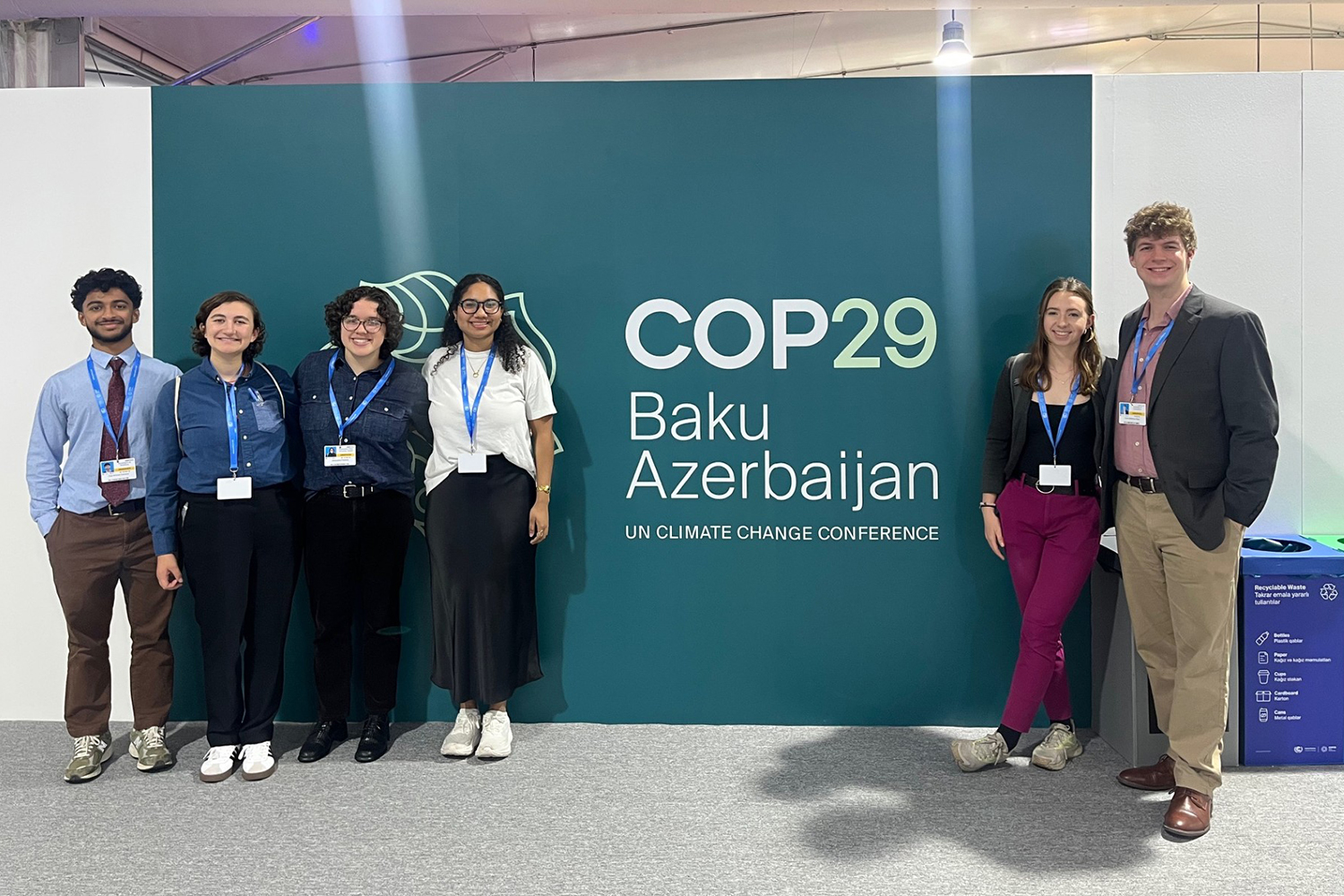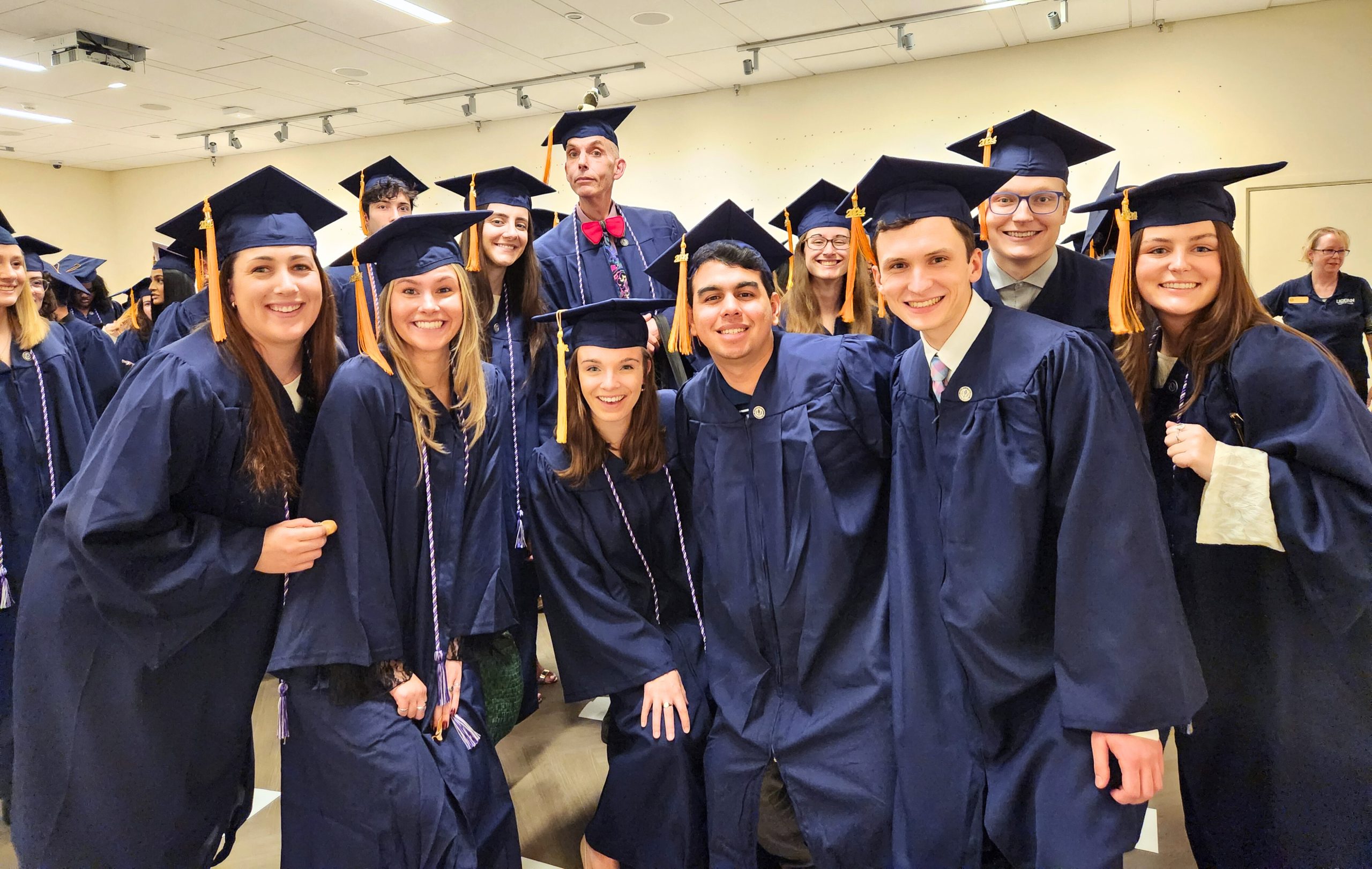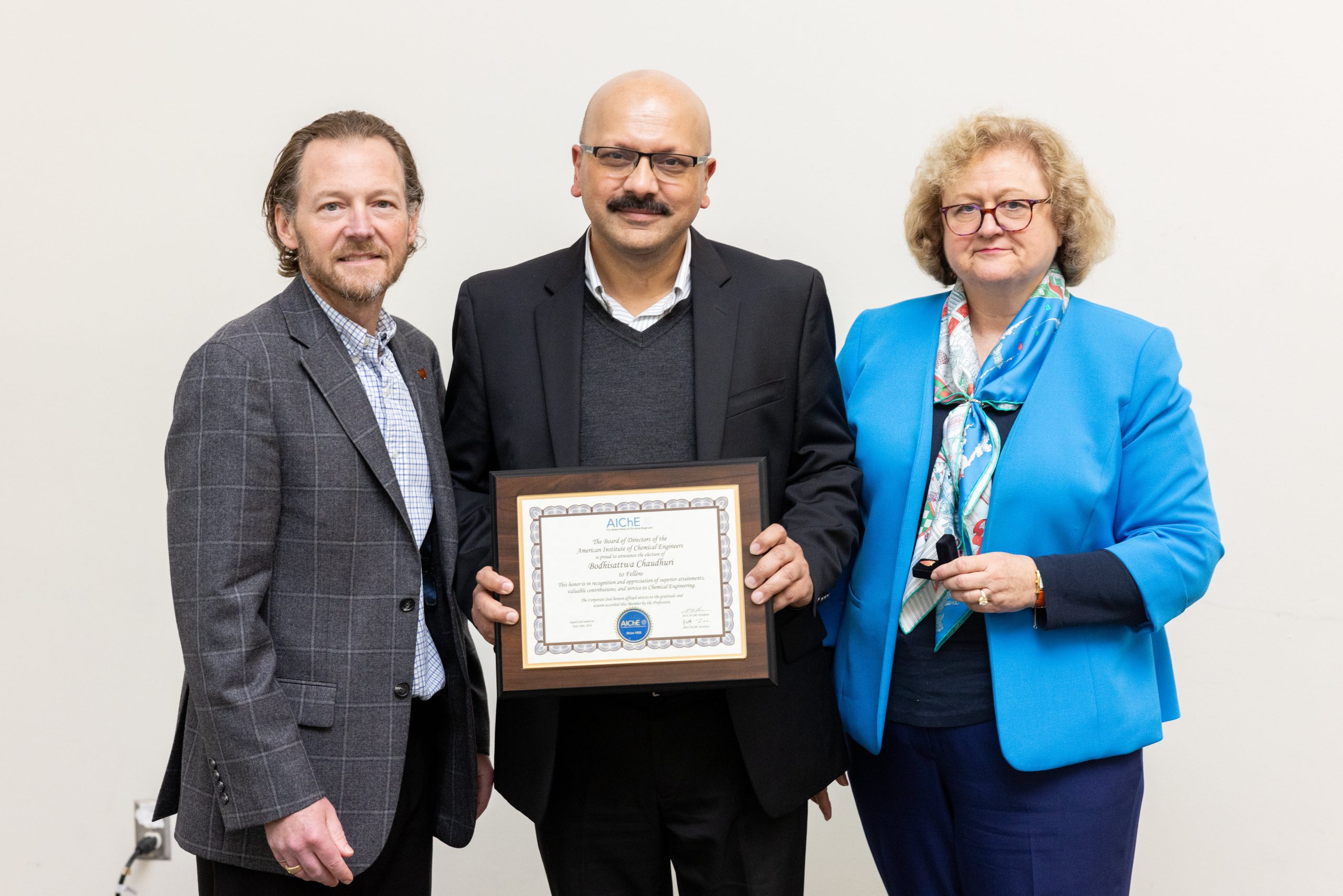Dr. Jeffrey McCutcheon Wins 2014 FRI/John G. Kunesh Award
By Sydney Souder Dr. Jeffrey McCutcheon, Associate Professor of Chemical and Biomolecular Engineering, is the recipient of the prestigious 2014 FRI/ John G. Kunesh Award. Presented by the Separations Division of the American Institute of Chemical Engineers (AIChE), the award acknowledges outstanding separations scientists under 40. Dr. McCutcheon received this highly competitive international award for his outstanding achievements and contributions in the field of osmotic separations. “I have long made AIChE a part of my professional network,” says McCutcheon. “And I am eager to continue that throughout my career.”
Dr. Jeffrey McCutcheon, Associate Professor of Chemical and Biomolecular Engineering, is the recipient of the prestigious 2014 FRI/ John G. Kunesh Award. Presented by the Separations Division of the American Institute of Chemical Engineers (AIChE), the award acknowledges outstanding separations scientists under 40. Dr. McCutcheon received this highly competitive international award for his outstanding achievements and contributions in the field of osmotic separations. “I have long made AIChE a part of my professional network,” says McCutcheon. “And I am eager to continue that throughout my career.”
Dr. McCutcheon is a leading scholar in the development, characterization, and performance testing of novel membranes for forward osmosis applications. His substantial contributions have been recognized by the industrial community. In the past three years, he has received the Solvay Specialty Polymers Young Faculty Award, the 3M Faculty award, and the DuPont Young Professor award.
Dr. McCutcheon is the Director of the Sustainable Water and Energy Learning Laboratory (SWELL). His early work included pioneering studies on forward osmosis (FO), a salinity gradient process that uses osmotic potential for driving a desalination process. This work has since expanded to consider other osmotically driven membrane processes.
“Water is a key component of economic growth, and it is a necessary commodity to help humanity emerge from the global economic slowdown. My research seeks to reduce the cost of producing drinking quality water from saline or otherwise impaired water sources,” he says. “I am excited by revolutionary technologies that approach the challenges of desalination and water reuse in a unique and cost effective manner.”
Dr. Yongku Cho Awarded Prestigious NARSAD Grant
By Sydney Souder Dr. Yongku Cho, Assistant Professor in the Department of Chemical and Biomolecular Engineering, has received a prestigious and highly competitive NARSAD Young Investigator Grant. Funded through the Brain & Behavior Research Foundation, NARSAD grants are dedicated to research in brain and behavior disorders. The Young Investigator Grant supports promising young scientists conducting neurobiological research.
Dr. Yongku Cho, Assistant Professor in the Department of Chemical and Biomolecular Engineering, has received a prestigious and highly competitive NARSAD Young Investigator Grant. Funded through the Brain & Behavior Research Foundation, NARSAD grants are dedicated to research in brain and behavior disorders. The Young Investigator Grant supports promising young scientists conducting neurobiological research.
Dr. Cho’s two-year grant offers  critical backing to enable him to collect pilot data for his innovative ideas. His grant will support Dr. Cho’s research group to develop a novel approach for rapid and reversible knockout of target genes. His group will research which regulated protein levels affect brain circuits. They will specifically study the mechanism of GABAA receptor dysfunction. Deficits in GABAA receptor function have been linked to multiple neurological and psychiatric disorders, such as epilepsy and schizophrenia. With his new technique, he intends to study the role of GABAA receptor interacting proteins, which may lead to therapeutic targets for such diseases.
critical backing to enable him to collect pilot data for his innovative ideas. His grant will support Dr. Cho’s research group to develop a novel approach for rapid and reversible knockout of target genes. His group will research which regulated protein levels affect brain circuits. They will specifically study the mechanism of GABAA receptor dysfunction. Deficits in GABAA receptor function have been linked to multiple neurological and psychiatric disorders, such as epilepsy and schizophrenia. With his new technique, he intends to study the role of GABAA receptor interacting proteins, which may lead to therapeutic targets for such diseases.
First exposed to engineered antibodies during his graduate  research at Wisconsin, Dr. Cho is now interested in manipulating these proteins to include new functions. “The broader objective of the work is to engineer antibodies with useful functionalities that they normally would not have,” says Dr. Cho.
research at Wisconsin, Dr. Cho is now interested in manipulating these proteins to include new functions. “The broader objective of the work is to engineer antibodies with useful functionalities that they normally would not have,” says Dr. Cho.
If successful, this project could have wide applications and might connect with UConn’s interests as well. Dr. Cho foresees a potential collaboration with the Jackson laboratory for Genomic Medicine. The new laboratory at UConn’s Farmington campus seeks genomic solutions to disease, making medicine more precise and predictable. They are one of world’s leading institutes for transgenic mouse research.
“With the methods from this research, we might be able to pinpoint gene functions within such model organisms,” says Cho. For more information on Dr. Cho and his research, please visit his website.


